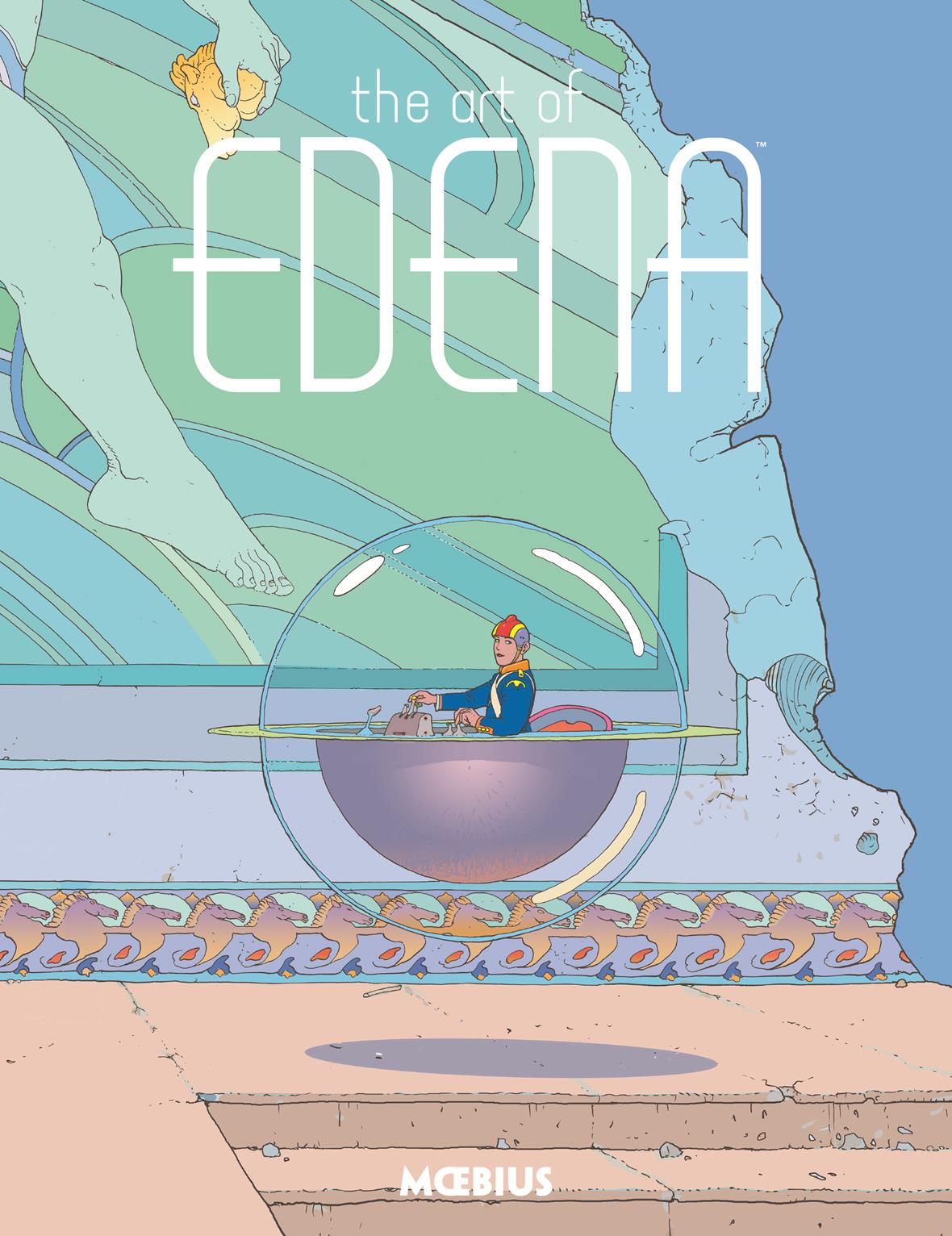[amazon_link asins=’1506703216′ template=’AiPTProductAd’ store=’aiptcomics-20′ marketplace=’US’ link_id=’6c3b58dd-33a1-11e8-9bd1-e115b15a6724′]
To the horde of avid manga-reading teens lining the back aisle floors of Barnes & Nobles nationwide, the term “anime” cogitates a beloved Japanese animation style oft despised by their parents. Few are at all aware that anime likely adopted its distinctly non-Japanese name from a French comic art style known as dessin animé (“anime” also serving as an abbreviation of sorts for “Japanimation” notwithstanding) popular throughout the 70s and 80s.
Early innovators within the sub-genre include Jean-Claude Mézières and Pierre Christin whose sci-fi comic epic Valérian and Laureline was adapted into the recent Luc Besson film Valerian and the City of a Thousand Planets (had only that film been a success, one can’t help but wonder if it’d renew interest in the format). Other, more popular Franco-Belgian titles include The Adventures of Tintin and The Smurfs. And while considering all the accolades one could bestow to the above artists and titles, few names in the French comic book industry compete with that of Jean Henri Gaston Giraud, better known under his pseudonym Moebius.

Acting as a conceptual artist for films such as Alien and The Fifth Element, sporadically contributing to the adult fantasy mag Heavy Metal (Arzach serving as loose inspiration for the “Taarna” segment of the feature film), illustrating Alejandro Jodorowsky’s The Incal and even collaborating with Stan Lee on a volume of Silver Surfer, the wide breadth of Moebius’ work can perhaps best be exemplified in his interplanetary high-fantasy Le Monde d’Edena, or The World of Edena.
Beginning as a series of stylized promotional advertisements commissioned by automobile manufacturer Citroën back in 1983, Edena follows the interstellar exploits of our two androgynous protagonists, Stel and Atan, psychic “mekaniks” making their way in a universe of sprawling characters, alien structures and strange creatures. Reminiscent of Hayao Miyazaki’s early work (namely Nausicaä of the Valley of the Wind), Moebius’ sweeping otherworldly vistas bring the ethereal landscape of dreams to the printed page. What better way to commemorate the groundbreaking auteur’s unique visual style than with The Art of Edena?

If you were an American kid in the mid-90s and an enthusiast of Moebius’ work, you likely had to settle for the Comic Images-produced collectors card sets (many of which featured panels from Edena) in order to showcase and share the illustrious illustrators varied artistic ventures. Dark Horse’s newly released The Art of Edena, however, serves as the perfect coffee table book for Moebius fans worldwide and functions as an extraordinary companion piece to the comic itself (also newly published, in English, by Dark Horse).
Join the AIPT Patreon
Want to take our relationship to the next level? Become a patron today to gain access to exclusive perks, such as:
- ❌ Remove all ads on the website
- 💬 Join our Discord community, where we chat about the latest news and releases from everything we cover on AIPT
- 📗 Access to our monthly book club
- 📦 Get a physical trade paperback shipped to you every month
- 💥 And more!













You must be logged in to post a comment.